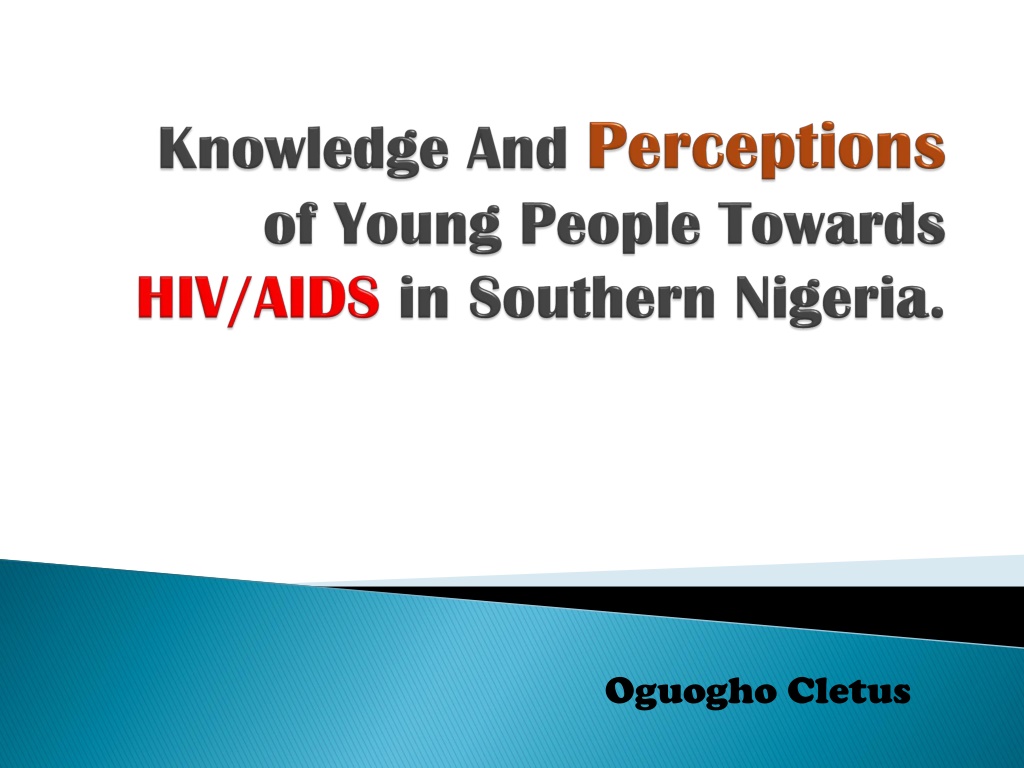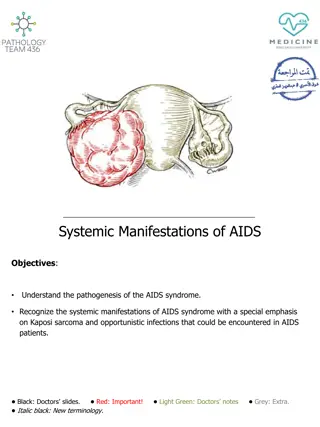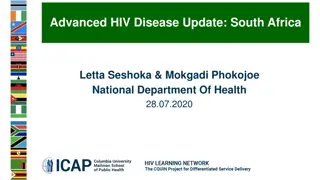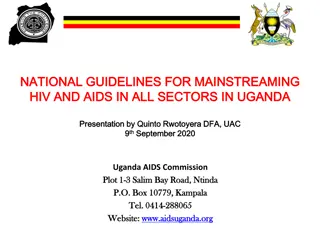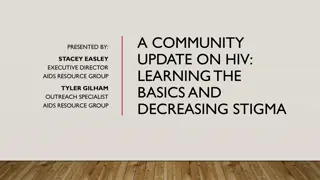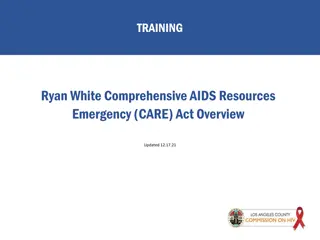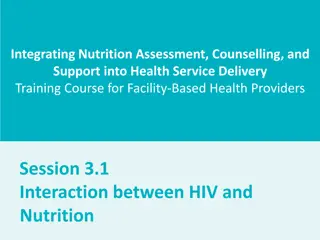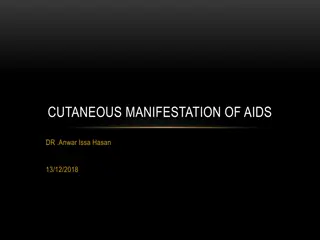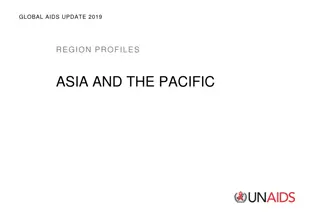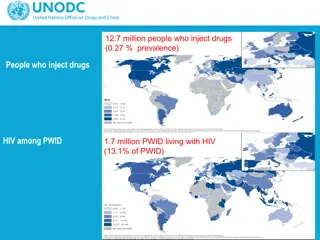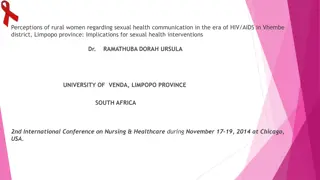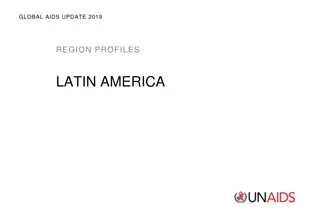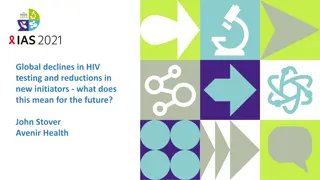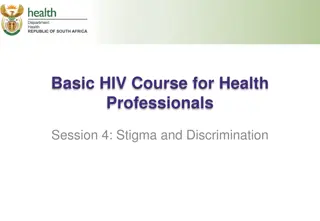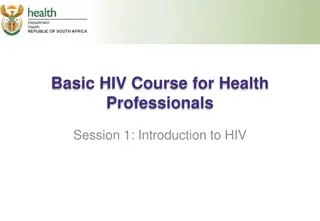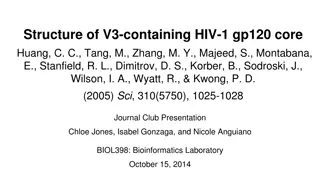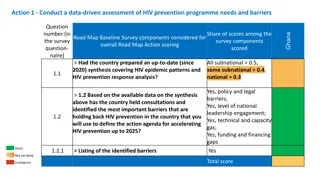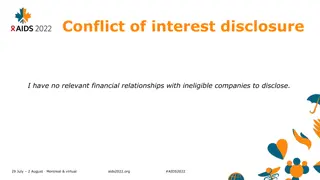Understanding HIV/AIDS Perceptions Among Young People in Southern Nigeria
The study focuses on examining perceptions and attitudes towards HIV/AIDS among young individuals in Southern Nigeria. It analyzes the level of awareness, knowledge, and potential relationships between HIV/AIDS knowledge and sexual behavior. The aim is to gather insights to shape effective HIV/AIDS prevention strategies tailored to the needs of students in the region.
Download Presentation

Please find below an Image/Link to download the presentation.
The content on the website is provided AS IS for your information and personal use only. It may not be sold, licensed, or shared on other websites without obtaining consent from the author. Download presentation by click this link. If you encounter any issues during the download, it is possible that the publisher has removed the file from their server.
E N D
Presentation Transcript
We do not believe in all those kind of disease here, we have heard about it, but it could be spiritual sickness they call AIDS in the hostital (Respondent, 2013).
Las Vega and Nigeria Las Vega and Nigeria
Nigeria have the largest population in Africa with over174million. The first case of HIV in Nigeria was diagnose in 1986 Over 210,000 Nigerians have died of AIDS.
Africa have 24.5million cases of HIV around the world. Nigeria occupies second place in the highest number of HIV cases around the globe (over 3.1million). Southern Nigeria is presently hosting the highest number of HIV cases in Nigeria.
Young people represent over 60% of New cases in Nigeria Over 82% of people aged between 18-24 are students in Nigeria
Gender Difference Socio-economic conditions Religion Early Marriage, e.t.c
Objectives What perceptions and attitude towards HIV/AIDS exist among YP in southern Nigeria? To what level are YP in Nigeria aware of HIV/AIDS? Is there any relationship between the level of knowledge of HIV/AIDS and their sexual behaviour?
The aim of this study was to determine the Knowledge, perception and attitudes concerning HIV/AIDS of students in Southern Nigeria and also to assess the Needs for HIV/AIDS prevention programs at schools. To come up with findings that would help to formulate or design proper strategy that will suit HIV/AIDS Prevention Programs.
Several reports has shown that Low Risk Perception contributes the highest new HIV cases in developing countries, including Nigeria.
The design was a descriptive mix method research. Quantitative descriptive method (Questionnaire)- used to quantify the factor of Knowledge and attitude Qualitative descriptive method (FGD)- used to explore the perception of the same sample. The data were collected using both quantitative and qualitative data collection instruments. Statistical Package for the Social Sciences (SPSS version 19) was used for result analysis
Demographic background of participants N N % % Male 402 63 Gender Gender Female 240 37 Single 628 96.9 Marital Marital Married 16 2.5 Separated 4 0.6 Christian 616 95.1 Religion Religion Muslim 12 1.9 Traditional 20 3.1 Age limit: 18 to 24
The average knowledge level was quite high (73.9%) among young males and females students that were recruited in this study. 47.9% of students do not know that AIDS virus can be transmitted via oral sex. Particularly, regarding the specific modes of HIV transmission. However, the FGD shows a very Low risk perception among the respondents.
Comparing the findings of this study with other government and NGOs report on HIV/AIDs among young people in Nigeria Negligence Lack of proper evaluation of information Comparing the findings of this study with other government and NGOs report on HIV/AIDs among young people in Nigeria Relationship between the findings and the AARM theoretical framework Recongnising Recongnising and and lebelling lebelling action as risk Relationship between the findings and the AARM theoretical framework action as risk
No one has ever got close to us to discuss such a sensitive Issue. We were really at risk, but our perception towards HIV And AIDS has changed . (FGD (FGD respondents, respondents, 2013 2013) )
The questionnaire was derived from a more comprehensive one Self-report questions was used The sample did not represent the whole Nigeria youths
Increase awareness Talk about HIV/AIDS to those most at risk
References References Abdool, Q. (2001). Barriers to preventing human immunodeficiency virus in women: experiences from KwaZulu-Natal, South Africa. Journal of the American Medical Women's Association; 56(4), 193-196. Abdulraheem, I.S., & Fawole, O.I. (2009). Young people's sexual risk behaviours in Nigeria. Journal of Adolescent Research; 24(4), 505-527. Abdulraheem, I.S., & Fawole, O.I. (2009). Young people's sexual risk behaviours in Nigeria. Journal of Adolescent Research, 24(4), 505-527. Adebayo, D.O., Udegbe, I.B., & Sunmola, A.M. (2006). Gender, internet use, and sexual behaviour orientation among young Nigerians. Cyberpsychology & Behaviour, 9(6), 742-752. Adebiyi, A.O., Owoaje, O., & Asuzu, M.C. (2008). Relationships as determinants of substance use amongst street children in a local government area in south-western Nigeria. South African Family Practice, 50(5), 47-47d. Adedimeji, A. (2003): Perception of HIV/AIDSinfection and condom use amongundergraduates in Nigerian universities .Department of Sociology, University of Ibadan. Adegoke, S.O. (2010) Effect of HIV/AIDS Awareness on Sexual Behaviour of students in Tertiary Institutions in Nigeria . Ilorin: University press Ademokoya, J.A., & Ben-Stowe, J.N. (2007). Experiences of Mothers of Children with Hearing Disability in Oyo State, Nigeria. The Social Sciences, 20(3), 293-297. Adinma, J.I.B., Agbai, A.O., Okeke, A.O., & Okaro, J.M. (1999). Contraception in Teenage Nigerian School girls. Advances in Contraception, 15(4), 283-291. Adjibolosoo, S.B. (2006). Developing Civil Society: Social Order and the Human Factor Hampshire . Burlington: Ashgate Publishing Limited. Adu-Mireku S. (2003). Family Communication about HIV/AIDS and Sexual Behaviour Among Senior Secondary School Students in Accra
